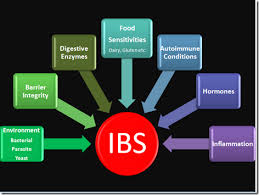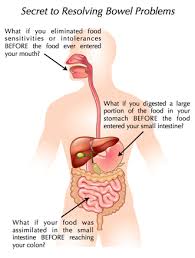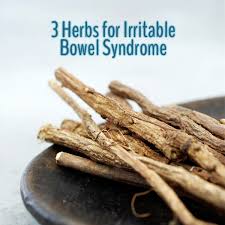Irritable Bowel Syndrome – is no laughing matter, it can be quite debilitating actually, and anyone who suffers is searching for answers. The internet is loaded with definitions, explanations, and an exponential amount of advice. I’ve tried to root through the information to determine effective strategies that can be easily implemented into the routine and lifestyle of people with Fibromyalgia.
If you’ve been following GreenIrene’s FIBRO FIGHT PAGE on Facebook, or you’ve subscribed to the Fight Fibromyalgia Green & Clean Program – then, you are already aware of the significant role that FOOD and DIET play in creating a strategy that allows us to live a much greater quality life. However, for those of us that suffer from IBS – sticking to, or finding an actual menu of foods that work for our individual metabolism is a huge challenge.
Irritable Bowel Syndrome can be extremely painful, mildly uncomfortable, or insanely erratic. Symptoms from fatigue to nausea, and bloating to cramps, justifiably make us feel more than a little irritable. So the whole idea of fooling around with food and adjusting our diets is a very frightening consideration. However, having a clearer understanding of how the digestive system works and introducing the right components into your diet will not only help with the Fibromyalgia symptoms – but will also help decrease the amount of suffering from, and a number of bouts or attacks of IBS you’ll have to endure.
The two main causes of IBS are food allergies and an overgrowth of bacteria in the small intestine. Other contributors may include a lack of digestive enzymes, parasites living in the gut, zinc or magnesium deficiencies, heavy metal toxicity, etc. Since we are not all created equal, it’s very important to personalize treatment based on unique circumstances – there are no “one size fits all” solutions or cures. There are, however, a number of steps we can personally take and strategies we can implement to improve the condition and motility of our bowels.
One of the first things you’ll want to do is IDENTIFY TRIGGERS. When determining your strategy for coping consider the influence of each of these common triggers that cause IBS flare-ups.
- STRESS/ANXIETY
- DIET & HYDRATION
- LACK OF EXERCISE
- POOR SLEEPING HABITS
- MEDICATIONS/PHARMACEUTICALS
By creating a flexible though consistent, a menu of foods and daily routines, I – like many other Fibromyalgia sufferers with IBS have seen dramatic changes.
Opt for H2O – Drink as much water as you possibly can in the day! 8-10 glasses or more (64 fluid ounces +++ per day). It’s a crucial element for keeping our digestive tracts functioning properly. I keep a bottle on my nightstand, it’s the first thing I reach for in the morning. 10 minutes later my trip back from the restroom has me opening a second and several more throughout the day.
Stretch/Exercise – When you take a peek at the video of how the bowel functions, it’s easier to understand how and why any and ALL forms of stretches as well as an exercise regime benefits the motility of the bowel and excretes the potentially painful gas build-ups. I keep a pilates stretch band in my nightstand – first thing in the morning I use the band to do “reverse crunches”. It helps wake the bowel up and activate the peristalsis motion.
Mindful meditation – Learning to meditate for the sake of IBS alone (not to mention a million other beneficial reasons) will improve your efforts to cope tremendously. Numerous scientific studies have proven that hypnotherapy, meditation, and visualization techniques have a huge impact on the severity of IBS flare-ups and are amazing for controlling the severity of an attack.
SOME DIET SUGGESTIONS
Avoiding TRIGGER FOOD is much easier if you keep a diary for a month or so. It’ll help you identify the foods that you are sensitive to. Some common sensitivities include dairy (including milk products that contain casein), wheat, beef, pork, lamb, and soybeans. Caffeine and tobacco are stimulants and can cause spasming and worsen diarrhea. Carrageenan is a food additive that is used in a lot of processed food products as a thickener and emulsifier (ice cream, yogurt, cottage cheese…) – it has been linked to intestinal ulcerations and should be avoided. READ YOUR LABELS!
Taking peppermint oil (enteric-coated capsules) a half-hour before a meal or a couple of drops into a smoothie will reduce muscle spasms and cramping. Carob powder (mixed with applesauce and honey) can be taken for diarrhea occasionally to soothe an annoyed intestine. Other natural options include turmeric spice which reduces inflammation and abnormal muscle contractions in the bowel. Slippery elm powder can heal irritated digestive tract issues – prepare a tea of slippery elm flavored with a little sugar and cinnamon. Probiotics contain friendly bacteria that help to stabilize the digestive tract and can be found in a multitude of milk-free foods.
Adding hemp seed &/or cannabis to your diet is also an extremely effective DO – but more on that subject coming soon.
Last but not least – try eating several small meals (5-6) times a day versus 2-3 larger. Grazing is happiness according to my bowel – perhaps yours will agree!

Creating recipes, adjusting menus and new routines may take some time, effort, and trial and error yet the rewards are great. Whatever works best for YOUR body.
Get Healthy, Be Strong, Stay happy!
















